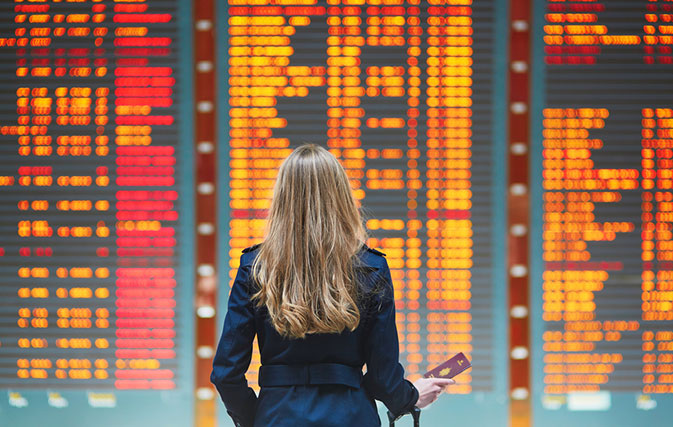TORONTO — It’s beyond galling to think of how many more clients might have travelled this summer if it weren’t for the delays and congestion at airports and passport offices.
Right now, though, many travel advisors are too busy helping their clients navigate the latest round of flight cancellations to dwell on the lost business.
Higher-than-normal flight cancellation levels have been plaguing airlines since the pandemic upended the industry, and especially since travel got going again this spring.
Adding insult to injury, Canadian airlines and airports have claimed top spots in flight delays in recent days, notching more than nearly any other around the world.
For months the blame-game has gone around and around. Airlines have called out the federal government for congestion at the airports, especially at Pearson, and specifically the slow-moving CATSA security lines for departing passengers, and the bogged down arrivals procedures with random COVID testing and ArriveCAN.
The government has accepted its share of the blame and urged airlines to do the same, saying the airline industry is using the government as a scapegoat where the bigger problem is flight cancellations. Among the airlines making cancellations, Air Canada recently announced it was cutting back its schedule by more than 150 flights per day, or about 9,500 flights in total, this month and next.
“MORE UNPAID WORK”
For travel advisors, the reasons behind the flight cancellations are less important than the work they now face helping some clients adjust their travel plans.
Niche Travel Group’s Faith Sproule says her biggest issue so far has been WestJet cancelling some direct flights from Halifax. “We just had clients have to backtrack to Calgary with WestJet for their trip to Paris with one day’s notice,” she says. “What had been a six-hour direct flight turned into 16 hours and travel in the wrong direction first.”
All the media coverage of the airport delays and flight cancellations means many people fear booking any vacation right now, she says, adding that there’s a fine line between keeping the public informed about the delays, and inciting panic.
She adds that her agency is letting clients know to expect longer than normal wait times in customs, and her agents are booking flights that allow for 2.5 – 4 hour connection time if they don’t have Nexus.
For Robert Townshend, owner of Toronto-based Total Advantage Travel & Tours, flight cancellations during travel’s restart have been the cause of anxiety, unneeded stress, sleepless nights and angry clients.
Townshend had a group of 100 travelling to Edmonton for a wedding with Air Canada Groups. The travel dates were July 8-10, but then Townshend received an automated schedule change notice at the beginning of June, saying that the group’s return was cancelled and there was no alternative flight to offer them.
On June 5, Townshend was told that 50 members of the group could get on an earlier flight, with the rest spread out through the day. With next to no other options, the next day, on June 6, Townshend accepted the offer to accommodate 50 of them on the one flight. That’s when things got worse. “The group agent acknowledged it but didn’t follow through and confirm my 50 seats. Then when I attempted to send in my 50 names for that flight, I got a response that they never confirmed it with revenue management and they don’t have those 50 seats anymore.”
Townshend’s frustration is matched only by that of his group. “Now my group is split up. I’ve lost some of them because they have blamed me for this and they have booked their own flights with WestJet or Flair.”
Other travel agents are waiting to see if any of their client files are impacted by cancellations.
Cambridge, ON-based travel advisor Caitlin Lajeunesse, part of the Independent by Flight Centre network, points to all the work many travel agents have done over the past two years, booking and rebooking clients again and again. “If their flights are impacted by the cancellations, my clients will be very disappointed!” says Lajeunesse. “These are trips that have been cancelled and re-booked twice now. We were finally seeing the light at the end of the tunnel.”
The bottom line? “These cancellations will mean more (unpaid) work for advisors and will upset travellers,” says Lajeunesse.
To read the full article check out the July 7 issue of Travelweek here.

